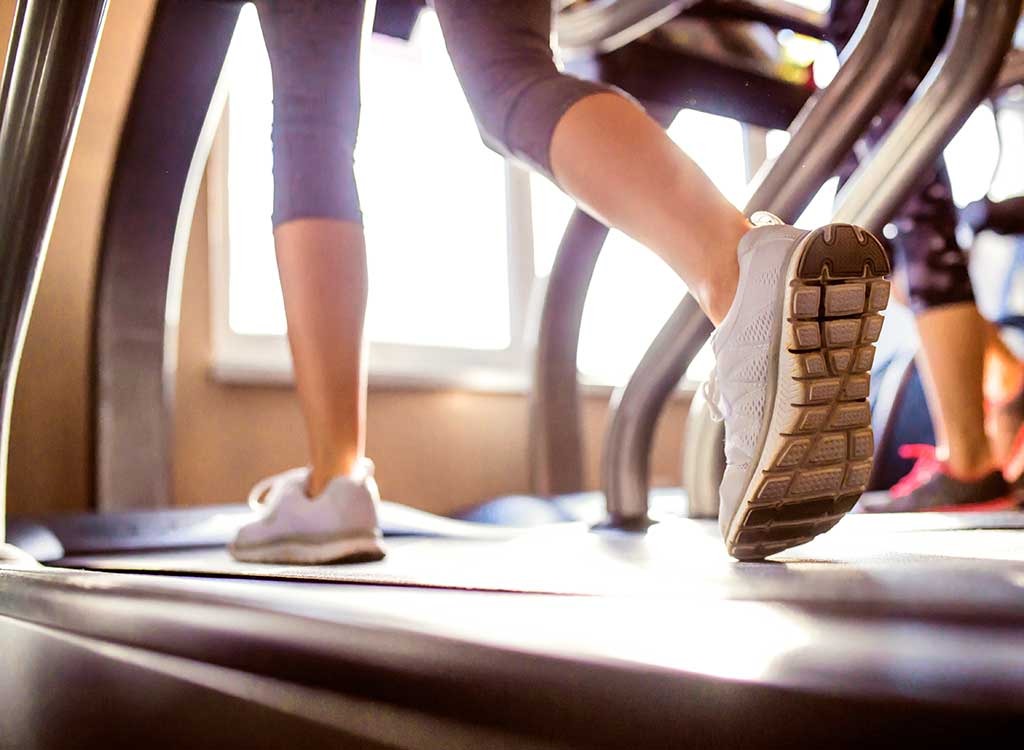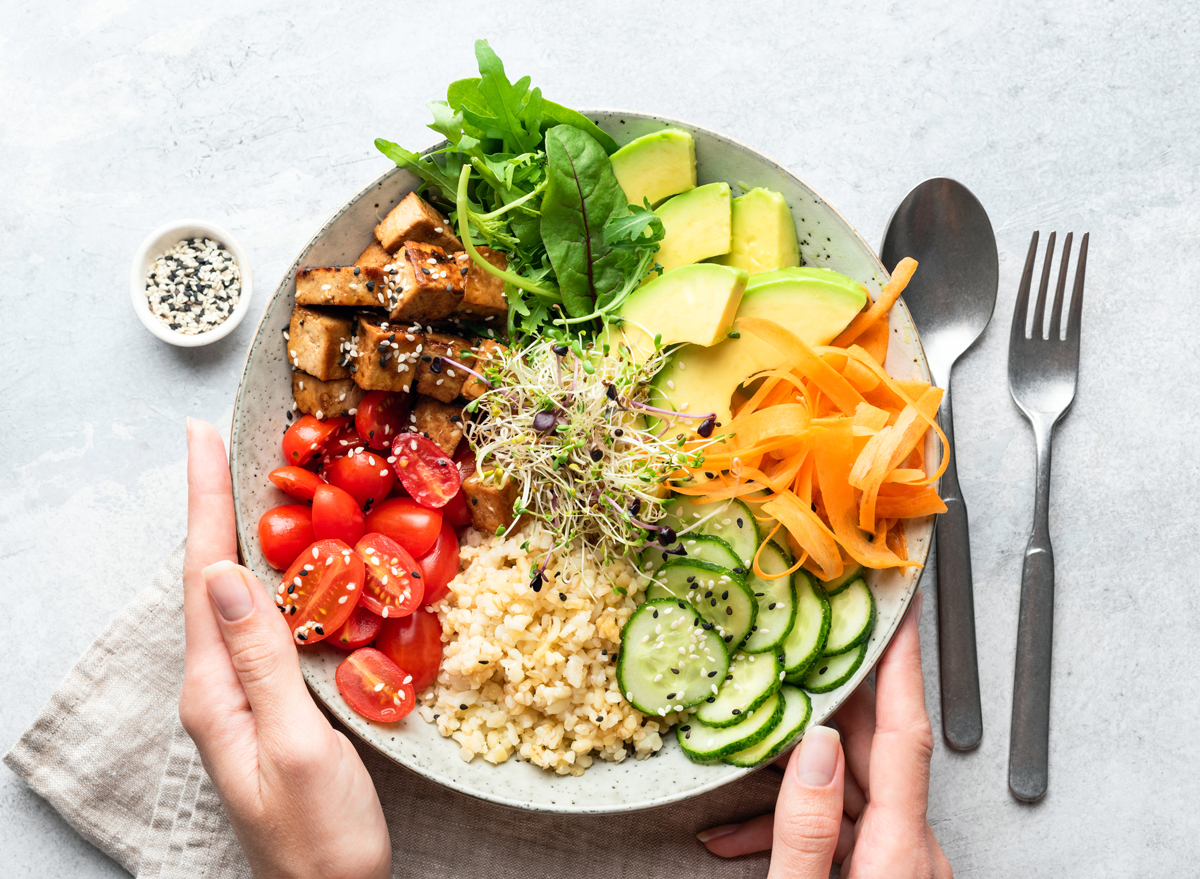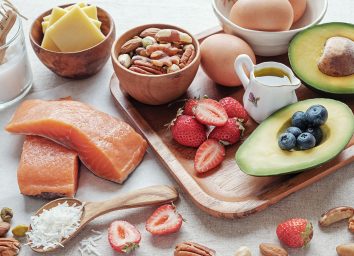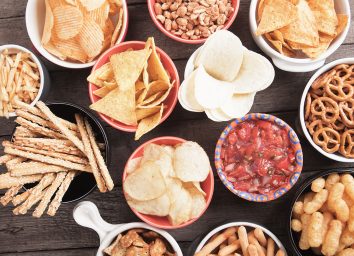Working Out and Still Gaining Weight? This Could Be Why.

There's no denying the fact that this past year has taken quite a toll on our bodies. If you find yourself a few pounds up compared to your pre-pandemic weight, do not worry. Stress can easily cause your body to hold some extra weight, and if you found yourself reaching for comfort food during the pandemic, you're not alone. Regardless of how the weight gain happened, you may find yourself feeling uncomfortable with the extra weight on your body, and you're feeling motivated to lose it. And what is the world's response to losing weight? Working out.
So, you start working out. You try running, HIIT, pilates, weight training, cycling, or any other workout that suits your fancy. Yet despite how dedicated you are to your new workout routine, you may find yourself not actually losing the weight that originally motivated you in the first place. In fact, you're gaining.
Sound familiar?
That's because it's been wildly misconstrued that working out will cause you to lose weight. When, in reality, exercise is only a small portion of weight loss—20% of it, to be exact. The majority of weight loss happens due to your nutrition (about 80%) as well as getting good sleep.
Here's why nutrition is the most important thing to focus on when trying to lose weight compared to working out, according to a few dietitians. And for healthy recipes to get you motivated, check out our list of 100 Easiest Recipes You Can Make.
Working out doesn't burn as many calories as you think.

"It is pretty easy to consume enough calories to compensate for those burned during exercise, so it could be possible that someone does not create an energy deficit with exercise that would allow for weight loss, or even consume the right number of calories to just maintain the same weight," says Jinan Banna, PhD, RD.
"Recognize that you are probably not burning that many calories with exercise," Banna continues. "If you run three miles, for example, perhaps you would burn around 300 calories, which might be the equivalent of a piece of bread with a thick spread of peanut butter."
Get even more healthy tips straight to your inbox by signing up for our newsletter!
Your eating habits play a big role in weight loss.

"Weight loss is 80% nutrition and 20% exercise and movement," says Emily Danckers, MS, RD. "If someone is working out consistently but isn't changing what they're eating (or is eating more to compensate for what they burned while exercising), it's very possible to continue gaining weight. A common saying is, 'You can't out-exercise a bad diet,' and this is definitely true. A solution would be to focus on total calorie intake. At the end of the day, this is what causes weight loss: eating fewer overall calories plus moving more."
In case you're wondering, This Is How Many Calories A Week You Should Eat For Weight Loss.
But if you're restricting calories, your metabolism could slow down.

"Your metabolism may be slowing down due to a calorie restriction and/or adrenal fatigue," says Trista Best, MPH, RD, LD at Balanced One Supplements. "To help address this you can consider adding foods with a greater chance of increasing your metabolism. Foods that increase the thermic effect of food (TEF) will increase your metabolism as well. When these foods are digested they raise the body's internal temperature which increases the number of calories burned during that time. This means you are burning calories while eating. Foods with a high TEF include dairy, fish, meat, eggs, nuts, seeds, and legumes."
Here are 31 Healthy Meals That Boost Your Metabolism for Weight Loss.
Instead of restricting, pay closer attention to what you're eating.

"My suggestion would be to pay close attention to exactly how much it is that [you] are eating," says Lisa Young, PhD, RDN, and author of Finally Full, Finally Slim. "The best way to do this is by keeping a food diary for at least a week and paying attention to not only what they eat but how much they eat. People are often surprised to find out that they eat more than they think they eat. I suggest that people cut back on their portions of calorie-dense foods (chips, meat, dressings) and increase their portions of lower-calorie foods (like non-starchy veggies and fruits). It's also important to pay attention to nibbles here and there which they also often don't realize."
"Focus on incorporating enough foods that are not so calorie-dense in the diet to maintain a better balance between calories in and calories out," says Banna. "This would mean enough of those fruits and vegetables that are high in water and fiber and relatively low in calories, for example. Incorporate such foods in creative ways in the diet to keep yourself interested in eating them, such as a smoothie that involves some vegetables."
Here are 18 Easy Ways to Control Your Portion Sizes.
Try changing up your workout routine.

"On the exercise front, changing up your routine may boost the calories you burn," says Young. "The body gets used to certain exercises we do regularly and burns fewer calories over time from that exercise. Changing things up can often give you a boost in energy expenditure. If you regularly run on a treadmill, consider the stair master for example. Or exercise outdoors!"
Here's One Major Side Effect of Working Out Regularly, Says New Study.
Working out can cause muscle weight gain.

"An exercise regimen stresses your muscle fibers. When that happens, it causes micro-tears on your muscles, usually called microtrauma, and a little inflammation hence the extra weight gain," says Edie Reads, RD and chief editor of healthadvise.org.
Reads points out this can happen for two reasons—water weight, and lean muscle mass.
"Your body's response to these changes can also have you gaining some water weight," says Reads. "First, the stress and muscle tearing causes water retention. Just a small micro tear will have your body retaining some fluid on the area to heal it. During this time, your body will also give your muscles some extra energy which can also have you adding weight."
However, once the initial water weight is gained, your body will make changes.
"As your muscles continue to keep up with the workouts, they will continue to need less and less glycogen for the same energy output. So, you'll likely begin to notice a reduction in weight," says Reads. "You'll also experience weight gain because of your lean muscle mass. This is often experienced later on as you continue working out and building muscles."
Try getting enough sleep.

"Also, [try to get] sleep 7 to 9 hours every day so you have a maximum healing time and keep the hormones regulating hunger in check," says Reads. Here are 7 Healthy Diet Changes That Help You Sleep.
Between changes in your eating habits and getting enough sleep, as well as a consistent workout routine, you'll likely see differences in maintaining a healthier weight once and for all.








